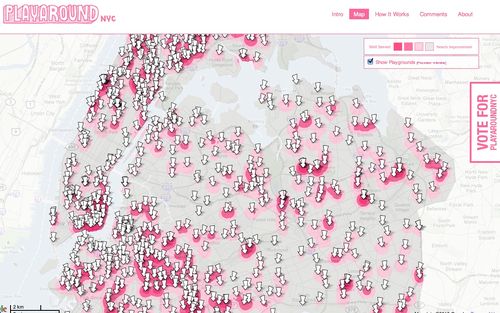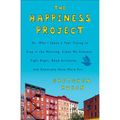A few days ago, I exchanged emails with a journalist friend. She said the following, "I'm just wondering which sectors/investment areas/types of start-ups you think will be exciting investments in 2010, and which you're staying away from because they're over-hyped, not yet ready, etc."
Today I sent a friend in the VC business an email outlining some areas I wanted to focus on this year so we could find some things to work on together.
In thinking about those two events, I decided I should just post the answers right here. So here goes:
I should say that this is my view, it probably reflects the views of my partners but I haven't shared this with them so I can't be sure. This is not an attempt to guess what my colleagues in the venture business are looking at. I don't think very much about that anyway. Every partner and every firm has their own investment thesis and that's great. I don't think it makes much sense to think very much about what others are doing. Focus on what you are doing. This is what I'd like to be doing in 2010:
1) Mobile: I am very excited about Android. As much as the iPhone has been transformative, it is still a tightly controlled environment. Android opens up mobile in a way that it can begin to look and feel like the web. Android will be on many handsets and many carriers. Developers can work with the source code if they want to. Apps don't have to be cleared by Google to run on Android phones. I could go on and on. These might not seem like big things but they are huge. Mary Meeker said in her mobile internet report that the mobile internet will likely be at least twice as big as the desktop internet. I think that's a safe bet and I would venture that it could be well north of that.
2) Mobile What?: We believe that we should focus on things you can do with a mobile web service that you cannot do on a wired web service. My partner Albert wrote a post about this last year and the conversation/comments on it are very enlightening. Go read his post and the comments and you'll see what kinds of things we are thinking about/looking at in mobile.
3) Gaming: I believe gaming is the most powerful form of entertainment and education right now. I see it with my kids every day. Gaming is becoming social and our portfolio company Zynga is the leader in social gaming. Gaming is also becoming mobile and the most popular apps across all app stores and operating systems are games. One area of gaming I am particularly excited about is augmented reality games. Augmented reality according to wikipedia is "a term for a live direct or indirect view of a physical real-world environment whose elements are merged with (or augmented by) virtual computer-generated imagery – creating a mixed reality." When I explained augmented reality to my son Josh, he said "do you mean me and my friends could run around the park shooting each other with our iPhones?". Well I hope we can come up with better augmented reality games than Tag and real life Call Of Duty but that's the idea for sure.
4) New forms of commerce and currency: I wrote a post last week about Etsy and the San Telmo markets in Buenos Aires that explains how the current e-commerce model on the internet is limiting and outlining the work we have yet to do to realize the potential of commerce on the web. Etsy is doing its part to move the commerce model forward and I am proud of that company and our investment in it. But there is so much more commerce that needs to be brought natively onto the web. Some of that will be new forms of commerce and some of that will be new forms of currency. I am excited about both.
5) Cloud based platforms and APIs – Many web services have APIs today. A good example is the Twitter API. These APIs have become development platforms in their own right. On top of that, Amazon and others are offering very robust cloud based platforms for developers. The combination of these two trends means that modern web and mobile development is being done on top of cloud based services and APIs. Until recently, we had not been interested in services aimed at developers but the emergence of cloud based platforms and open APIs is changing that. We've made two investments in this sector to date, MongoDB, a cloud based open source datastore, and Twilio, an API that allows web developers to access telephony resources from the cloud. Developers are the new power users. If you cater to them, you can build a large user base with significant network effects. And that is one of the key things we look for in our investments.
6) Education and the Energy/Environment: We've been looking at these two verticals for the past year. We've only made one investment to date, AMEE, which is a cloud based API for recording and measuring energy and carbon consumption. But we have not lost any of our interest in these verticals, which we believe are being impacted by the global open internet. We don't believe in making investments until we have done our homework, analyzed the sectors, and developed a thesis about where we want to invest. We are well on our way to doing that and I hope we'll do more in these two verticals in 2010.
So these are the six areas I'll be looking closely at in 2010. The first two are really one and the same, so it's five areas; mobile, gaming, commerce/currency, cloud platforms/APIs, and eduction/energy/environment.
In the six years we've been actively investing under the Union Square Ventures brand/platform, I've led/managed thirteen investments. So that's about two per year and that's the pace I like to work on. So five sectors, two investments means I won't be making an investment in each sector this year. We have three partners in our firm and we generally make six to eight investments per year as a firm. We may be able to make at least one investment in each sector as a firm. That would be a nice goal.


